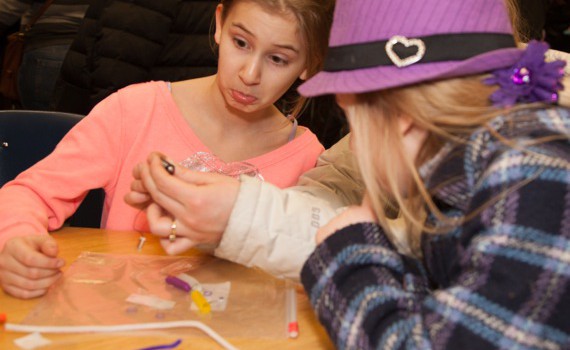August 25, 2013

 School has already begun for many students across the country. For those who aren’t already in school, the start is around the corner. The first days of a new school year are exciting for students and teachers alike. Students are happy to see old friends, put away new school supplies and show off new clothes. They are curious and a bit nervous about what their new teacher will be like. Will he or she be nice? Fun? Strict? Teachers also are excited to get to know their new students. In the past, teachers spent the first few weeks of a new school year getting to know their students, forming their class into a caring community, and teaching classroom procedures. Today, there is a greater sense of urgency during those first weeks as a teacher’s ability to accurately assess each student’s strengths and weaknesses will be reflected in how effective students are grouped for differentiated instruction during those first few months. Using engineering lessons and activities at the beginning of the year allows teachers to assess students’ strengths and weaknesses across the curriculum. Students asked to solve engineering problems will reveal if math and science concepts have been retained – and more importantly, if they can be applied to a problem. The use of a design brief allows teachers to discover if their students can write in complete sentences, sequence events as they occurred and communicate ideas and problems. This is all very valuable to a teacher at the beginning of the year. As important as it is to have the above information, a good engineering problem will allow teachers to learn so much more. As you walk around the room while the students are sharing ideas, you can discover:
School has already begun for many students across the country. For those who aren’t already in school, the start is around the corner. The first days of a new school year are exciting for students and teachers alike. Students are happy to see old friends, put away new school supplies and show off new clothes. They are curious and a bit nervous about what their new teacher will be like. Will he or she be nice? Fun? Strict? Teachers also are excited to get to know their new students. In the past, teachers spent the first few weeks of a new school year getting to know their students, forming their class into a caring community, and teaching classroom procedures. Today, there is a greater sense of urgency during those first weeks as a teacher’s ability to accurately assess each student’s strengths and weaknesses will be reflected in how effective students are grouped for differentiated instruction during those first few months. Using engineering lessons and activities at the beginning of the year allows teachers to assess students’ strengths and weaknesses across the curriculum. Students asked to solve engineering problems will reveal if math and science concepts have been retained – and more importantly, if they can be applied to a problem. The use of a design brief allows teachers to discover if their students can write in complete sentences, sequence events as they occurred and communicate ideas and problems. This is all very valuable to a teacher at the beginning of the year. As important as it is to have the above information, a good engineering problem will allow teachers to learn so much more. As you walk around the room while the students are sharing ideas, you can discover:- Which students are willing to listen to others’ ideas?
- Which ones are able to think outside of the box and come up with truly innovative solutions?
- Are there students who insist that their design is chosen to be built, regardless of the ideas of their other group members?
- Do you have students who constantly interrupt their classmates?
- Who are the students who are reluctant to share at all?
- Who takes over the project?
- Who won’t engage and sits back and lets other do the work.
- Who is a leader in the group?
- Who is able to draw in a reluctant group member?
What They Say

Wendy came to Bellevue Arts Museum to co-lead our Full STEAM Ahead! Summer Camp in August 2014. This camp was a huge success thanks to her expertise, experience, and warmth working with the campers throughout the week…
MEGAN DYE
Educational Outreach Director, The Bellevue Art Museum, Bellevue, Washington





